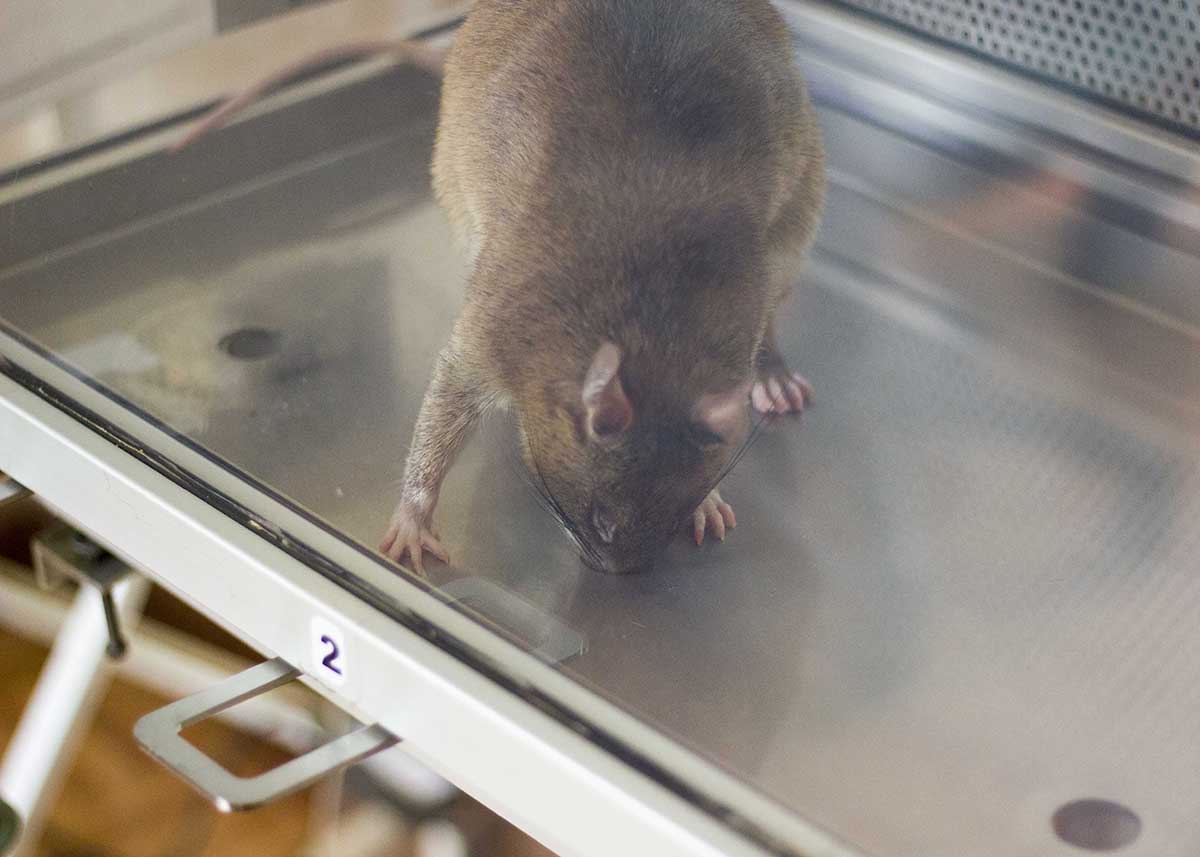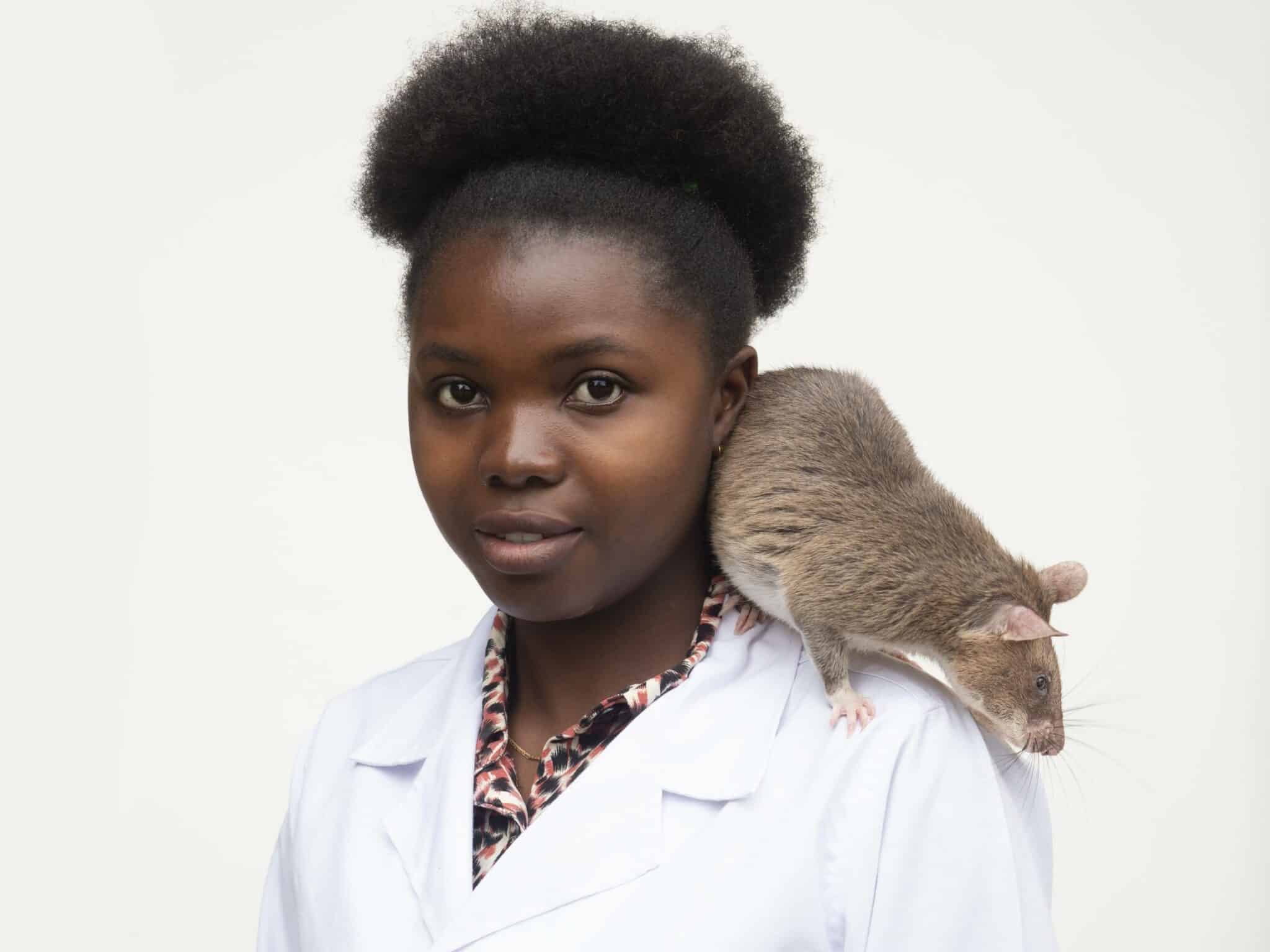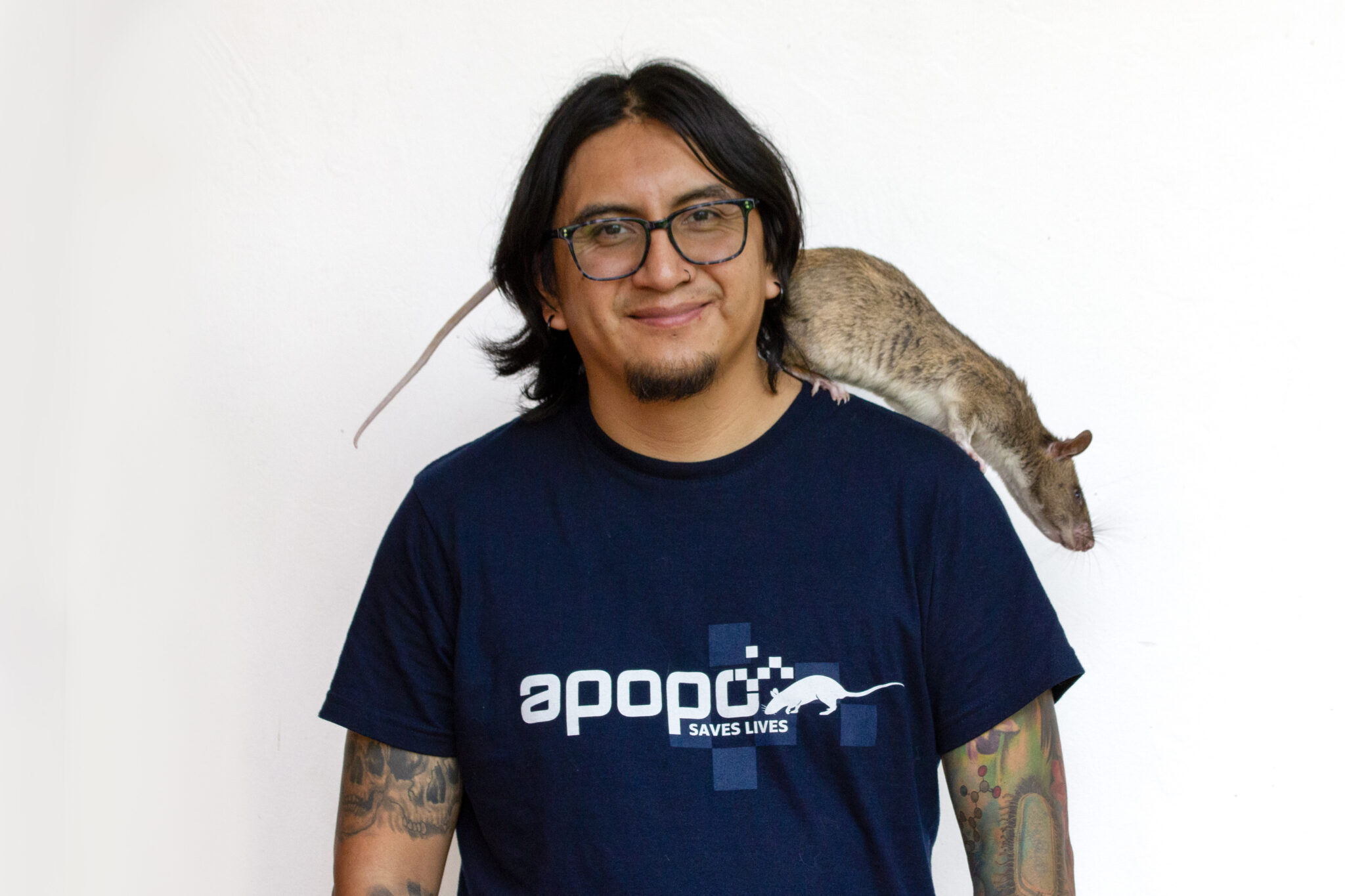Eduardo Reynoso, an experienced researcher in animal cognition and psychology from Mexico, has recently joined APOPO’s research team in Morogoro, Tanzania. Eduardo is set to contribute significantly to our tuberculosis (TB) detection projects, using his extensive expertise to develop more effective methods for training TB detection rats aka HeroRATs.
A Comprehensive Scientific Background
Eduardo’s journey into behavioral science and animal training began with a bachelor’s degree in psychology, focusing on experimental analysis of behavior and cognition, followed by a master’s in Neuroethology with an interest in behavioral ecology. He then completed a PhD in psychology, conducting research in animal cognition and comparative psychology. “During all these years I have been taking other accreditation courses in animal welfare and animal training,” Eduardo says.
This educational journey equips Eduardo well to tackle the challenges faced by APOPO’s TB projects, allowing him to apply his knowledge to practical and impactful solutions.
Discovering APOPO
Eduardo first heard about APOPO during a PhD class in 2016, where the application of behavioral sciences to real-world problems was discussed. He recalls, “I was amazed by the cost-effective relation and the impact of the rats in the populations where they operate, which is life-changing.” This early exposure sparked his interest in our work, leading him to eventually join our team to apply his skills in a meaningful and impactful way.
Innovating in TB Detection

In Morogoro, Eduardo is part of our team working to advance APOPO’s TB detection capabilities. “In our current project, we are testing a new training strategy and the advantages of using automatic lines,” he explains. These new lines automatically give the TB detection rats access to each sputum sample, without the need for a human operator to open each hatch one at a time, and potentially giving the rats unintended clues about which samples are suspected of being positive for TB. This work is crucial for enhancing the speed and accuracy of our detection rats, in collaboration with the Tanzanian Health Ministry to fight TB more effectively.
Eduardo’s commitment to refining training processes shows through his dedication to improving the efficiency of these life-saving animals, directly impacting early TB diagnosis and treatment.
Adjusting to Life in Morogoro

Adjusting to life in Morogoro has been a significant yet rewarding change for Eduardo. He finds many similarities between the local culture and that of his native Mexico, which has helped him settle in. “Being surrounded by this huge biodiversity is something amazing. Waking up hearing many songbirds or going to sleep hearing the frogs and the crickets is such a great experience,” he shares. The culinary diversity has also been a highlight for him, blending Mexican and Tanzanian flavors to create new dishes.
Working With the HeroRATs

Eduardo’s experience working with the African giant pouched rats has been both challenging and fulfilling. He highlights the importance of the bond between the rats and their trainers, saying, “What surprises me the most is the bond that the trainers and rats develop through all the time they spend together.” This close relationship enhances the training program’s success, ensuring each rat’s health and progress are closely monitored.
According to Eduardo, the dynamics between trainers and rats are not merely functional but are built on deep mutual trust, crucial for achieving the high standards of training required for the sensitive work of TB detection.
Strengthening APOPO’s Research and Impact
Everyone at APOPO is thrilled to have Eduardo on our team. His experience and fresh perspective are vital as we continue to develop innovative solutions to combat TB. His work is not only contributing to the effectiveness of our projects but is also bringing new energy and ideas that benefit the entire team. Through his efforts and those of the whole TB team, APOPO expects to be better equipped to continue its mission of health innovation and community service, aiming for a healthier future for all communities affected by TB.

